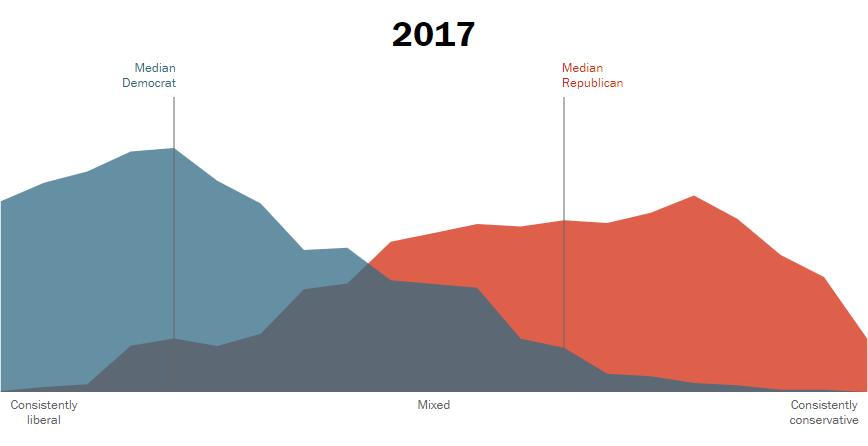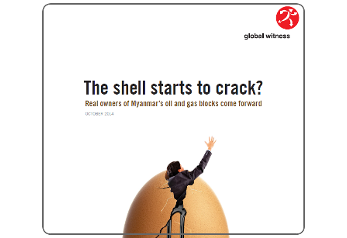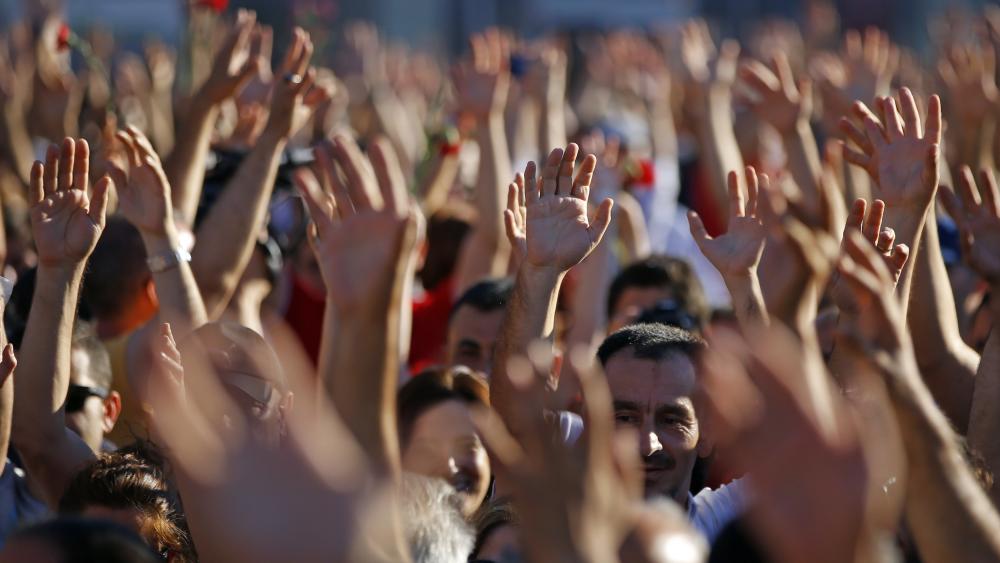 Ricardo David Ruiz Cepeda
Ricardo David Ruiz Cepeda
The profitability of domestic polarization has always played an astonishing role in the geopolitical game of power. Regardless of the political system, structural fissures are a natural implication of any social order. In this regard, ambitious foreign powers and unprincipled politicians occasionally take advantage of highly polarized societies, widening their political cracks, and profiting from the resulting chaos. Unsurprisingly, coup d’etats, regional splits, and empire dissolution are mere “collateral damage” in their grand strategy.
A common denominator in this dynamic is the collaboration between disaffected domestic elements and external actors to expand the gaps between fissures to advance their interests. Regrettably, for some politicians, it is better to be a rat’s head than a lion’s tail, which opens the doors to foreign meddling.
Like a two-edged sword, polarization as a geopolitical tool can be an asset but also a liability. The use of this tool encourages others to use it as well. All countries are susceptible to extreme polarization, even Great Powers. The more polarized the society in question, the more vulnerable it is to manipulation.
Besides, the internet potential for sharpening existing political division has a multiplying effect never seen before. In the past, at least people were more exposed to different points of view, which allows society to make a clear mainstream pool of ideas. Despite the unprecedented access to information people enjoy today, individuals are trapped in filter bubbles where they have unlimited access to unverified online information reinforcing their preconceptions and biases. This dynamic makes it easier for external actors to shepherd people according to their interests.
Regardless of the enormous potential of the internet in hybrid warfare, the critical component is the tribal human nature. Amy Chua explains it magnificently in her book Political Tribes: Humans are tribal. We need to belong to groups. We crave bonds and attachments, which is why we love clubs, teams, fraternities, and family. Almost no one is a hermit. Even monks and friars belong to orders. But the tribal instinct is not just an instinct to belong. It is also an instinct to exclude.
Some groups are voluntary; some are not. Some tribes are sources of joy and salvation; some are the hideous product of hate-mongering by opportunistic power-seekers. But once people belong to a group, their identities can become oddly bound with it. They will seek to benefit their group mates even when they personally gain nothing. They will penalize outsiders, seemingly gratuitously. They will sacrifice, and even kill and die, for their groups.
Understanding domestic and foreign polarization are essential tasks for the survival of countries, especially Less Powerful States (LPS). Besides the vulnerability to foreign powers manipulation, extremely polarized societies are highly unpredictable and unreliable partners. Once the Pandora box is open, anything could happen.
“A Rat’s head is better than a Lion’s tail.”
Independently of the country or the political system, politicians’ speeches usually invoke the importance of the motherland, their patriotism, and the supposed national interest they care more than anyone else. Frequently, under the disguise of their references to the “national interest,” they hide their pretensions.
The truth is that the vast majority of them only care about power from a shortsighted and individualistic point of view. It is not surprising to see them changing their old principles for the more suitable new ones, as long as this is helping them to stay in power or grab it. As a consequence, history is full of stories where disaffected politicians compromised the sovereignty and real national interests of their country. Collusion with foreign powers for advancing their agenda is usually an option.
The dismemberment of the Ottoman Empire is a classic example of divide and rule 101. As a geopolitical strategy, the British encouraged Arab Nationalism at the heart of the Ottoman Empire during WW1. Colonel Thomas Edward Lawrence, better known as the Lawrence of Arabia, played a pivotal role in backing the Arab Revolt. The result was the implosion of the multiethnic entity. Unsurprisingly, while the Arabs were fighting for freedom, the British and the French signed the secret infamous Sykes-Picot Agreement dividing the Middle East between themselves into their spheres of influence.
It is impossible to know what could have happened with a strengthened Mughal central authority and the determination to keep the European powers at bay. However, the Meiji Restoration approach in Japan offers an interesting extrapolation.
When Commodore Mathew Perry sailed into Tokyo harbor in 1853, Japan had been isolated from the rest of the world for more than 220 years. While Japan was going through its medieval phase, the West was in the middle of the industrial revolution and colonial expansionism. The Tokugawa shogunate, the feudal military government, banned any contact beyond the borders and the presence of foreigners in Japan. This policy was named Sakoku, which means “chained country.”
Perry’s expedition forced Japan to open its ports to commerce, imposing the unequal Japan-US Treaty of Peace and Amity, which opened the ports of Shimoda and Hakodate to US ships. After this humiliation, other European powers followed suit, forcing Japan to sign similar agreements. A standard clause of those unequal treaties was the exclusion of local jurisdiction: only their own country’s consular court could trial foreigners who committed crimes in Japanese territory.
The end of common sense
“It is difficult to get a man to understand something when his salary depends on his not understanding it.” Upton Sinclair
In polarized societies, common sense usually is the less common one. Identifying the opportunities from chaos, unscrupulous leaders emerge to take advantage of the widespread social irrationality. Those politicians sell themselves as messianic leaders who can fix it all, especially “imaginary problems.” They appeal to the feelings of people and push them even farther to the extremes. The political and economic costs for their countries can be huge, but that is irrelevant for them as long as they can enjoy the benefits of power.
The rise of Nazism in Germany provides a prime example. After WW1, the Allies humbled the arrogant and mighty German Empire. As usual, the victors’ shortsightedness did not let them appreciate the long-term consequences of the draconian measures imposed on the defeated rival. The allies distributed among themselves the German colonies and exacted it unbearable reparations conditions. In this context, the German society started polarizing, and, paradoxically, an opportunist foreigner emerged appealing to the feeling of nationalism.
As a messianic leader, Hitler launched a campaign to eliminate delusionary problems, ending up creating real ones for his country and the whole world. As a result, Germany passed from being a Great Power to become a split nation in the sphere of influence of the new two superpowers during the Cold War. Nowadays, a unified Germany is the European economic locomotive, but it is very far away from being the geopolitical colossus the German Empire was. It is reasonable to consider that if the conditions the Allies imposed on Germany had been less severe, the world would have avoided WW2.
The situation in Venezuela is another appalling case. After trying to topple President Carlos Andrés Pérez in a failed coup attempt in 1992, the former Coronel Hugo Chavez managed to win the presidential elections in 1998. The disconnection between the elite of the country and the rest of the population opened the way to Chavez, who was very smart for channelizing people’s feelings in his favor.
The social anger allowed Chavez to obtain a landslide victory, which provided him with a mandate to remake the country. As a typical messianic leader, he encouraged polarization as much as he could to vilify the opposition and legitimize authoritarian measures. As a result, Chavez destroyed the institutional check and balances. Besides, he used profligately public resources to co-opt other countries and harass every dissident voice.
Nowadays, Chavez is dead, but Chavism is still alive. His uncharismatic successor, Nicolas Maduro, followed his messianic leader’s playbook. However, after 21 years in power and bad governance, there is no one to blame for the collapsing state of the nation but the regime itself. The broad support Chavez enjoyed has evaporated, but Chavism is already entrenched in power and the dismembered opposition in disarray.
The cost of Chavism for Venezuela has been immense. In an article published in Foreign Affairs in 2018, Moises Naim and Francisco Toro raised the following figures:
“Exact figures for Venezuela’s GDP collapse are notoriously difficult to come by, but economists estimate that it is comparable to the 40 percent contraction of Syria’s GDP since 2012, following the outbreak of its devastating civil war. Hyperinflation has reached one million percent per year, pushing 61 percent of Venezuelans to live in extreme poverty, with 89 percent of those surveyed saying they do not have the money to buy enough food for their families and 64 percent reporting they have lost an average of 11 kilograms (about 24 pounds) in body weight due to hunger. About ten percent of the population—2.6 million Venezuelans—have fled to neighboring countries”.
The biggest beneficiaries of the Venezuelan debacle are the new political elite and unexpected foreign power. Cuba provides the Venezuelan government with advice about how to “control its population,” some international cachet in the remaining romantic Marxist circles and unconditional political support. In exchange, according to Reuters, it has received, since the year 2000, at least 55,000 barrels per day or more than $21 billion worth of oil. The collapse of the South American country has been a very profitable enterprise for Cuba. Regrettably, Venezuela is still paying the price of extreme political polarization.
The West is not an exception to extreme polarization. Since the election of the first Afro-American President in American history, both major political parties in the US have pulled away from the center of the political spectrum towards the extremes, particularly the Republican Party. The fierce opposition to President Obama pushes the Republican Party to a Faustian bargain with radical groups: white supremacists, “climate change deniers,” nationalists, and others. As a consequence, the extreme political division opened the ways to a messianic leader: Donald J. Trump.
The extreme domestic environment does not allow the US to play its role as the balancer in the global chessboard effectively. Consequently, Russia is expanding its influence in the Middle East and Africa; Saudi Arabia and Israel are overplaying their hand in the Middle East, and China is taking the driver seat in global matters.
Strategically, Russia encourages fragmentation in the West. A divided Europe and a distracted America permit Moscow to follow a more ambitious agenda regionally and on a global scale. Since the allegation of Russian meddling in the US presidential elections of 2016, many more accusations have joined into the list.
Esca valves and political pressure
“Polarization affects families and groups of friends. It’s a paralyzing situation, a civil war of opinion”. Mick Jagger
Polarization and instability are natural implications of prolonged tensions about the handling of sensitive affairs. Regrettably, it is part of the political cycle. In this regard, human organizations normally depressurize themselves through reforms or revolutions. Leadership-substitutions function as scape valves of last resort to free unmanageable pressure and renovate the system. In consolidated democracies, elections are supposed to play this role. For other forms of government, the renovations mainly operate through alternative channels: coups, assassination, elite’s consensus, and others.
The foundation of the Peoples’ Republic of China in 1949 provides a reference point on political pressure and scape valves. In this regard, since the first Opium War until the communist takeover, polarization, instability, and international interference put the Middle Kingdom at the edge of implosion.
The Manchu Qing Dynasty was unable to keep its legitimacy to rule before a predominantly Han population. The constant foreign humiliations eroded its political capital. In Confucian terms, it lost the Mandate of Heaven. Insurgency and plots against the dynasty characterized its last years. Not surprisingly, as the historian John Kaey exposed in his book “China: a History,” the extreme polarization precipitated the falling of the dynasty after the brief Wuchang Uprising between the years 1911-1912.
The proclamation of the new Republic of China in 1912 was supposed to decompress the political tensions. However, the irreconcilable division between Yuan Shikai and Sun Yat-sen, the mains leaders of the new republic, did not allow the regime to centralized authority. Strategically, taking advantage of the political tensions and in collaboration with the ousted last Chinese Emperor, the Japanese doubled down their advance in the annexation of Chinese territory. This scenario opened the way to a third actor in Chinese politics, the Communist Party of China (CPC) After the Japanese invasion and cruel civil war, the CPC emerged as the unquestionable political force in the mainland.
The CPC centralized the authority efficiently across the country and launched massive social reforms, some of them unsuccessful like the Great Leap Forward and the Cultural Revolution, and others very successful like the Four Modernizations. Simultaneously, leadership cohesion allows the country to have peaceful power transitions. In this way, the Communist Party of China managed to handle polarization through reforms after the revolution.
Sometimes, external factors can play a role in decompressing political tensions or increasing them. American history provides several examples of foreign attacks that allowed the country to overcome polarization to organize bipartisan positions. As Samuel P. Huntington detailed in “Who are we: The Challenges to America’s National Identity,” the September 11 terrorist attack increased patriotism awareness in the American public. At the time, not closing rank with President Bush could have been perceived as unpatriotic. We can extrapolate the same situation to the American reaction to the Japanese Attack on Pearl Harbor and the alleged Spanish sinking of the USS Maine.
Messianic leaders prevent the system from depressurizing, adding wood to the fire. As a result, polarization can reach extreme levels. Highly polarized societies cannot fathom their best interest. In such a kind of environment, the reason is not enough to win over passions, so opportunist politicians and even foreign powers take the opportunity to fish in troubled waters. Eventually, common sense returns to society, but sometimes the cost of irrationality can be unaffordable.
In the past, political actors had enough time to evaluate, experiment, and reframe polarizing situations. Nowadays, the internet catalyzes polarization exponentially and spreads it faster, which reduces the system’s reaction time. Simultaneously, it also opened the window to make easier foreign meddling in domestic policies and political processes. As an answer to the current dynamic, many countries have started regulating the internet, especially social media.
Regulation can play an essential role in mitigating polarization and stopping foreign meddling. However, in a democratic system, it is challenging to sway society in this direction. Any regulation of the internet in this way implies freedom of expression restrictions, which is one of the cornerstones of democracy. The problem poses the question of finding the right balance for saving democracy without killing it.
Independently of the social drivers, the human tribal nature is behind extreme polarization. Instinctively, our species tend to dehumanize those who belong to different groups. As Hariri illustrates in his famous bestseller, “Sapiens a brief history of humankind,” this behavior can help us to survive in a cave. However, it cannot allow us to collaborate to create the functional cosmopolitan societies we are today living.
To protect the system, all the reasonable political actors should pay attention and address social concerns with the potential to fracture the social order. Every society is different, so are the roots of polarization. The best way to identify them and deal with them is by building bridges and breaking walls before it is too late.
Ricardo David Ruiz Cepeda is Head of the Inter-American System of Human Rights Division at Ministry of Foreign Affairs of the Dominican Republic










